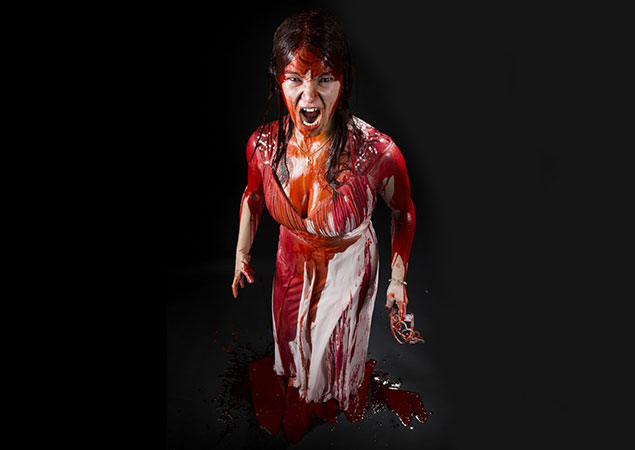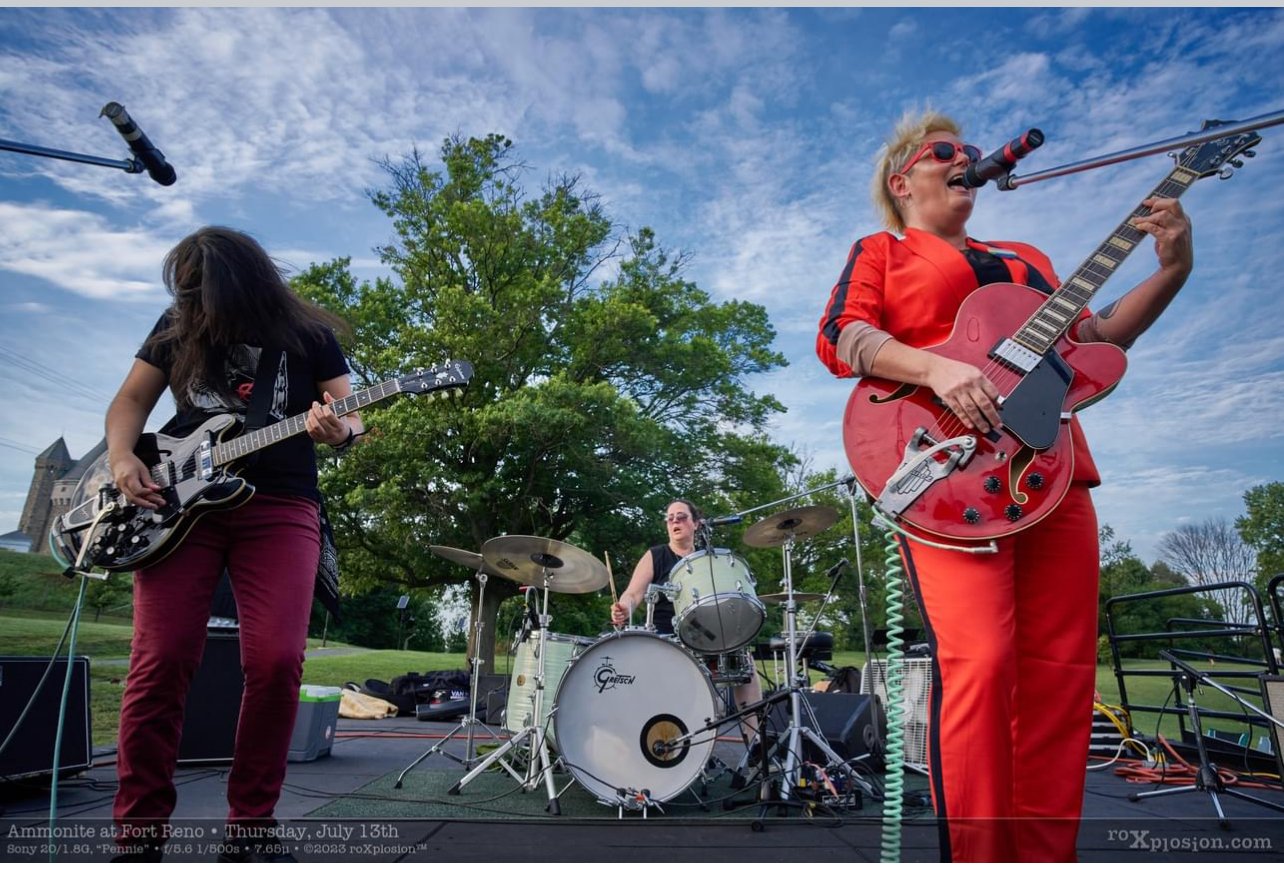First things first: You do not need a poncho to protect yourself from blood spatter while watching Carrie the Musical. Second: With all due respect to the musical as an art form, if you have been trying to convince your musical-hating friend to “just give them a chance,” this is probably not the production you want to use to prove your point.
The iteration of Carrie currently at Studio Theatre is actually the second version of the musical. The original, which debuted on Broadway in 1988, was a commercial and critical disaster; despite closing after just three days, it managed to lose $7 million dollars, leading the New Yorker to run an article in January 2012 titled “Is Carrie the Worst Musical of All Time?” The team behind the original—Lawrence D. Cohen (book), who also wrote the screenplay for the famous 1976 Brian De Palma movie; Michael Gore (music); and Dean Pitchford (lyrics) reunited for this off-Broadway effort. But despite an earnest, energetic staging at Studio (directed by Keith Alan Baker and Jacob Janssen), it’s not totally clear why they decided to resurrect their bloody work.
For anyone not familiar with the story, based on a 1975 novel by Stephen King, it goes like this: Carrie (Emily Zickler), a shy and awkward teen raised by a fanatically religious mother (Barbara Walsh), has trouble fitting in at school. She gets her first period in the worst possible place—the shower after gym class, surrounded by her peers, who torment her mercilessly. The upside is that Carrie’s entry into puberty unlocks some latent telekinetic powers, which she uses—first unwittingly, then on purpose—to defend herself against her attackers. Out of guilt, nice girl Sue (Maria Rizzo) convinces her boyfriend (Robert Mueller) to take Carrie to prom, giving queen bee Chris (Eben K. Logan) an opportunity to humiliate Carrie on a grand scale by rigging the prom-queen contest to get her crowned and then dumping a bucket of pig’s blood on her in front of the whole school. Carrie goes berserk, telekinetically seals everyone in the gym and starts a fire that kills all of them, and goes home to beg forgiveness from her mother, who, convinced her daughter is an instrument of the devil, stabs her in the back. A dying Carrie kills her mother, and in the end only Sue is left alive to tell the story. Uplifting, right?
Musicals have been made of stranger source material—Jerry Springer: The Opera, for instance—but the disconnect in Carrie lies in how it glosses over the essential darkness of the story in favor of jaunty song-and-dance numbers. Of which there are plenty: 25, to be exact, packed into a show that clocks in at under two hours. This gives the cast barely enough time to breathe, let alone act, between songs; it seems a few of the numbers that mostly just enforce a running theme could be cut without any detriment to the story.
The bigger problem, though, is that most of the musical numbers serve the gruesome purpose of turning the subtext into text. Every seemingly inexplicable cruel act perpetrated by a high schooler is immediately explained, in minute, rhyming detail with choreography to match; every motif is spelled out in giant neon letters. Scattered references place the action in the present day—one character mentions uploading a video of Carrie’s shower freakout—but there’s none of the cynicism or snark that could help these teenage characters feel more genuine to a contemporary audience. (Other false notes: Sue’s unrealistically perfect boyfriend Tommy, and a possibly gay character whose sexual orientation is consistently played for laughs.)
That said, the talented cast does their best with the material. Eben Logan as Chris has a powerful presence and delivers an outsize performance. Jamie Eacker is charming as the sympathetic gym teacher, and Barbara Walsh nails the terrifying, wide-eyed zealotry of Margaret White. (Maria Rizzo’s Sue, on the other hand, comes off a bit one-note.) As for Carrie herself? Emily Zickler is too polished to be completely convincing as wallflower Carrie, though she’s impressive in the climactic scene, managing to emote even while drenched in fake blood that she has to wipe out of her eyes as she sings.
The staging is simple—Luciana Stecconi’s set is minimalist, and the characters spend most of their time in the same high-school-appropriate ensembles (costumes by Kelsey Hunt). This keeps the focus on the story, which at its heart is about the horrors of adolescence and the desire to fit in no matter the cost. Those are bitter pills to swallow—but in this case, a spoonful of sugar doesn’t make them go down any easier.
Carrie the Musical is at Studio Theatre through August 3. Running time is about two hours, including one intermission. Tickets ($20 to $40) are available online.
Find Tanya Pai on Twitter at @tanyapai.















